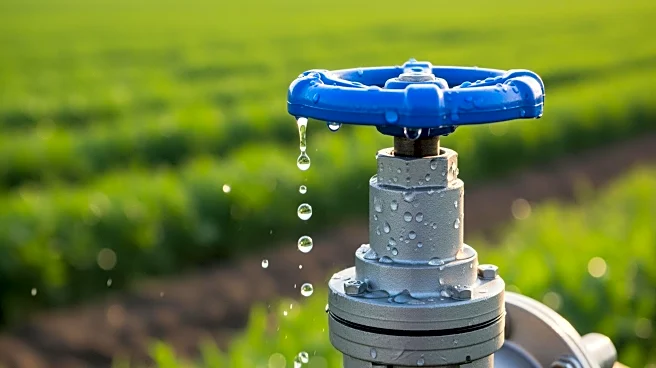What's Happening?
The Iowa Learning Farms (ILF) is hosting a conservation webinar on November 19, featuring Spencer Pech, a civil engineer at ISG, and Chris Hay, owner of Hay Water Solutions. The webinar will focus on the economic analysis of drainage water recycling systems,
which capture and store tile drainage water for irrigation purposes. This practice supports consistent crop production and addresses agricultural and environmental resource concerns. Pech and Hay will present data-driven solutions and highlight the benefits of drainage water recycling systems based on deployed projects.
Why It's Important?
Drainage water recycling systems offer a sustainable solution to agricultural water management challenges, particularly in regions with subsurface drainage issues. By repurposing tile drainage water for irrigation, these systems can enhance crop production and mitigate water quality impacts from agriculture. The economic analysis provided in the webinar will help stakeholders understand the financial viability and environmental benefits of implementing such systems. This approach aligns with broader efforts to promote sustainable agricultural practices and improve resource management.
What's Next?
The webinar aims to educate stakeholders on the practical implementation and benefits of drainage water recycling systems. As awareness grows, more agricultural producers may consider adopting these systems to improve water management and crop yields. The insights shared by Pech and Hay could lead to increased interest and investment in sustainable water management practices, potentially influencing policy decisions and resource allocation in the agricultural sector.
Beyond the Headlines
The adoption of drainage water recycling systems could have long-term implications for agricultural sustainability and environmental conservation. By addressing water management challenges, these systems contribute to the resilience of agricultural operations and the preservation of natural resources. The integration of such practices into mainstream agriculture could drive innovation and collaboration among stakeholders, fostering a more sustainable and efficient agricultural industry.















